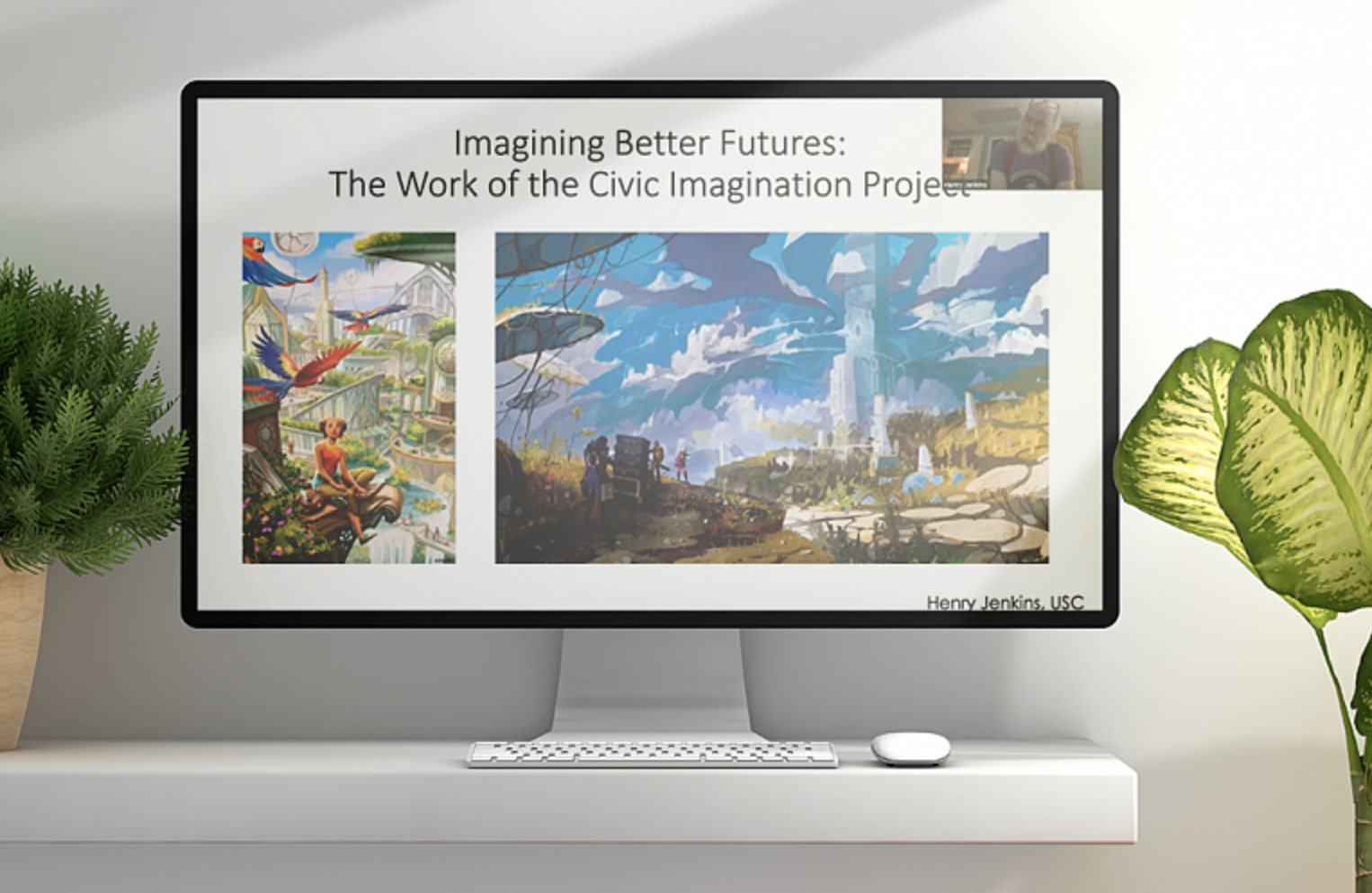On May 26, Professor Henry Jenkins presented the lecture Imagining Better Futures: The Work of the Civic Imagination Project within the 5th Annual International Symposium Education and City: The Third Mission of the University.
Henry Jenkins is Professor and Provost Professor of Communication, Journalism, Cinematic Arts and Education at the University of Southern California. He is a principal researcher in media, mass culture, and participatory action. He is an author of more than 20 books, one of which, Convergence Culture. Where Old and New Media Collide, was published in Russian in 2019.
In his lecture, Henry Jenkins spoke on the Civic Imagination Project, which aims to work with diverse local, professional, ethnic, and other communities to help them imagine what a sustainable future could be. Professor Jenkins emphasized that it is important to discuss the future at the civic level, which brings people together socially and culturally. He also mentioned that the inspiration for constructing the future can be found in science fiction, utopias, and superhero stories. Professor Jenkins identified the following functions of Civic Imagination:
The Civic Imagination Project’s approach is based on the principles of participatory cultures, drawing on the experiences of informal cultural communities, creative interaction, and linking cultural and civic practices. Professor Jenkins presented several examples of the project’s implementation in different countries. For example, in Mexico during COVID-19, there was a project called “Behind the Window”. Anyone could take a picture of what they saw through the window and describe their feelings. In another project, participants drew pictures of plants growing in the garden and wrote creative texts about them.
More than 40 teachers and researchers from Moscow City University, Lomonosov Moscow State University, HSE University, Sevastopol State University, Samara University, Saint Petersburg In-Service Teachers’ Training Academy, and others attended the lecture. At the end of the lecture, Henry Jenkins answered numerous questions about how he sees the education of the future, and how the project may be implemented in a different cultural and social environment.
See the recording of Professor Jenkins’s lecture:

